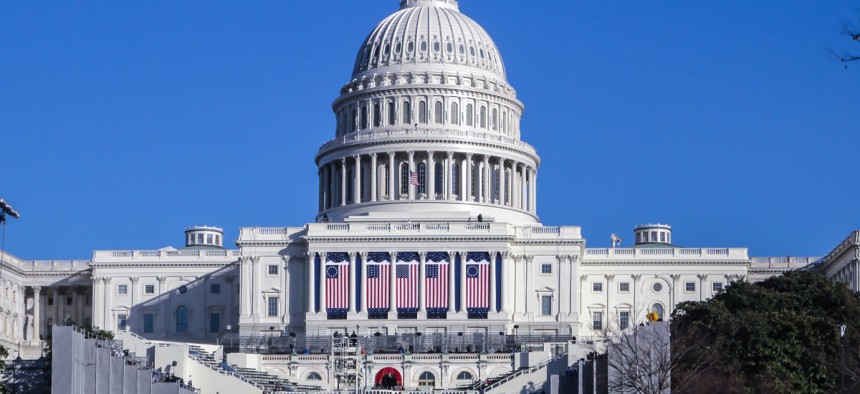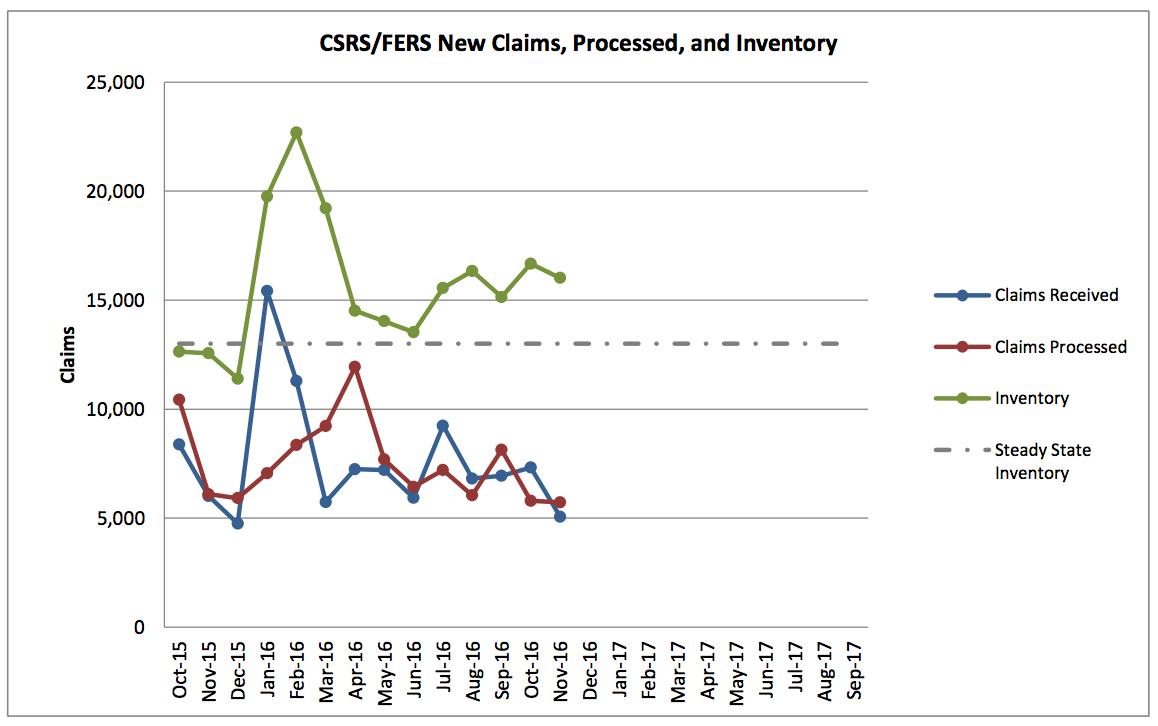Shutdown Suspense, Stubborn Retirement Backlog, Details on the Inauguration Day Holiday and More
A weekly roundup of pay and benefits news.
Uncertainty continues to be a theme for feds as Congress races against a Friday deadline to avoid a government shutdown. Negotiators unveiled a continuing resolution Tuesday evening that would keep government open through April 28. Unfortunately for feds, however, the measure contains some controversial provisions, including a waiver allowing Gen. James Mattis to serve as Defense Department secretary despite retiring from the military relatively recently (in 2013).
The House is expected to vote on the CR Thursday, and the Senate is expected to follow suit on Friday, which is the deadline for avoiding a shutdown. If a senator moves to filibuster the measure, the clock will expire and the government will close.
The good news is that if Congress does approve the CR over objections from Democrats, who weren’t happy with the process for arriving at the stopgap spending measure, then lawmakers have cleared one of the final hurdles for civilian federal employees’ pay raise, set by President Obama at 1.6 percent. Congress can interfere with Obama’s plan at any point before the new year, but the annual spending bill typically provides the best opportunity to do so and Congress did not include any language to that effect in the CR. Lawmakers opted to freeze their own pay.
Meanwhile, the backlog of retirement claims awaiting processing inched downward in November, but was still well above its level at the same time last year, according to new statistics from the Office of Personnel Management.
OPM ended November with 16,019 claims in its inventory, a decrease of 658 from the previous month. Though the backlog was headed in the right direction, it was still nearly 3,500 higher than it was in November 2015. The inventory is typically at its lowest in November and December, before spiking again in January.
Eliminating the retirement backlog has proved elusive for OPM. The agency originally wanted it gone by 2013, but sequestration got in the way. Recently the inventory has fluctuated throughout the year but has remained stubbornly above 10,000.
Speaking of retirement, the Thrift Savings Plan has released its year-end schedule so that you won’t miss any deadlines for 2016 transactions. The first deadline is Dec. 15, by which participants must submit any requests for annual changes in monthly payments (this applies only to those in monthly payment status). TSP will be closed on Dec. 26 and Jan. 2 for the holidays.
Federal employees in the Washington, D.C., area also have two holidays coming up in mid-January. They will have a day off on Monday, Jan. 16 for Martin Luther King Jr.’s birthday (this is a holiday for government workers nationwide) and also on that Friday (Jan. 20), for Inauguration Day.
OPM on Dec. 2 released some additional guidance for those holidays, as well as for the two work days preceding the Inauguration. Only those with offices inside the “Inauguration Day area” will have a break on Jan. 20. That area is defined as: the District of Columbia, Montgomery and Prince George’s Counties in Maryland, Arlington and Fairfax Counties in Virginia, and the cities of Alexandria and Falls Church in Virginia. The City of Fairfax falls within the boundary as well, OPM said.
There are some exceptions to the holiday, even for employees with offices inside the Inauguration Day area. Those who aren’t scheduled to work on Jan. 20 won’t receive an alternate day off. Those who telework will only have the day off if their telework site is within the perimeter of the Inauguration Day area, and those on official travel to a location outside the capital region will still be expected to work. The OPM guidance provides more detail for those with other unique situations, such as alternative or compressed work schedules.
In addition, OPM noted that significant traffic and commuting disruptions are expected in Washington on the Wednesday and Thursday before the Inauguration (Jan. 18 and Jan. 19), and encouraged federal agencies the region to allow employees to use workplace flexibilities such as telework to remain productive and reduce road congestion on those days.
In another workplace flexibility move, the House on Tuesday passed a bill (H.R. 4150) that would allow Veterans Affairs Department doctors to break with a “rigid, 40-hour work week pay schedule.” The move would offer VA doctors the same flexibility as their private sector counterparts, according to a summary of the bill. Doctors would be able to deviate from working 80 hours in a bi-weekly pay period, so long as their total hours for the year did not exceed 2,080. Doctors also could not accrue overtime as a result of their modified hours.
NEXT STORY: Open Season Q&A








